
JOURNAL OF PLANT RESEARCH
Scope & Guideline
Cultivating Knowledge, Growing Innovation.
Introduction
Aims and Scopes
- Plant Physiology and Biochemistry:
Research focusing on the biochemical processes within plants, including photosynthesis, respiration, and stress responses, is central to the journal's scope. - Ecological and Evolutionary Studies:
The journal publishes studies that investigate plant interactions with their environment, including ecological relationships, evolutionary adaptations, and biodiversity. - Genetic and Molecular Research:
There is a strong emphasis on genetic studies, including genome sequencing, molecular pathways, and the role of specific genes in plant development and stress responses. - Taxonomy and Phylogenetics:
The journal features research that delves into the classification, phylogenetic relationships, and evolutionary history of plant species. - Environmental Stress Responses:
A significant portion of the research addresses how plants respond to abiotic and biotic stresses, including drought, salinity, and pathogen interactions. - Biotechnology and Genetic Engineering:
The journal includes articles on the application of biotechnology in plant research, including genetic modification and the development of stress-resistant plant varieties.
Trending and Emerging
- Integrative Approaches to Plant Biology:
There is a growing trend towards studies that combine various methodologies, including molecular biology, ecology, and physiology, to provide a more comprehensive understanding of plant systems. - Climate Change and Plant Responses:
Research addressing the impacts of climate change on plant physiology, distribution, and ecological interactions is increasingly prominent, reflecting global environmental concerns. - Metabolomics and Transcriptomics:
The application of high-throughput techniques such as metabolomics and transcriptomics to understand plant responses to environmental stressors and developmental processes is on the rise. - Microbiome Interactions:
Studies exploring the role of plant-associated microbiomes in health, growth, and stress resilience are gaining attention, highlighting the importance of microbial interactions in plant biology. - Gene Editing and Biotechnology:
The use of CRISPR and other gene-editing technologies to develop improved plant varieties is a rapidly growing area, indicating a shift towards practical applications of plant research.
Declining or Waning
- Traditional Morphological Studies:
There is a noticeable decrease in papers focusing solely on traditional morphological studies without incorporating molecular or genetic analyses, reflecting a shift towards more integrative approaches. - Single Species Studies:
Research centered exclusively on single plant species, particularly those that do not address broader ecological or evolutionary implications, seems to be waning in favor of studies that explore interactions among multiple species. - Historical Taxonomy:
The journal has seen a decline in articles that primarily focus on historical taxonomic classifications without new molecular or genetic insights, as the field evolves towards more dynamic and data-driven approaches.
Similar Journals

Horticultural Plant Journal
Unlocking the Secrets of Plant ScienceThe Horticultural Plant Journal, published by KEAI PUBLISHING LTD, stands at the forefront of horticultural research and innovation. With an ISSN of 2095-9885 and an E-ISSN of 2468-0141, this open access journal has been committed to disseminating significant findings in horticulture since 2015. As of 2023, it proudly holds prestigious Q1 rankings across multiple categories, including Biochemistry, Genetics and Molecular Biology, Ecology, and Plant Science, reflecting its impactful contributions to diverse scientific fields. Located in Beijing, China, the journal not only facilitates groundbreaking studies but also provides crucial insights into sustainability and environmental issues, being ranked in the top tiers of relevant disciplines. This makes it an invaluable resource for researchers, professionals, and students who aim to stay at the cutting edge of horticultural science, offering them the latest research that informs both academic understanding and practical application.
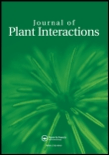
Journal of Plant Interactions
Illuminating the Dynamics of Plant RelationshipsThe Journal of Plant Interactions, published by Taylor & Francis Ltd in the United Kingdom, serves as a leading open-access platform dedicated to advancing the understanding of plant interactions and their ecological implications. Established in 2005 and transitioning to open access in 2015, this journal focuses on both fundamental and applied aspects of plant interactions, providing invaluable insights for researchers, professionals, and students within the fields of Ecology and Plant Science. With a commendable impact factor and ranked in the second quartile (Q2) for both Ecology, Evolution, Behavior and Systematics and Plant Science, it reflects the quality and relevance of its published research. Researchers aiming to publish innovative studies on plant behavior and ecosystem dynamics will find a welcoming avenue for their work, as the journal is dedicated to fostering open dialogue and sharing knowledge across disciplines.
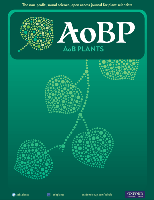
AoB Plants
Leading the way in plant science advancements.AoB Plants is a distinguished open-access journal published by Oxford University Press, dedicated to advancing the field of plant science. Since its inception in 2009, this journal has played a pivotal role in disseminating high-quality research that encompasses a wide range of topics including plant biology, ecology, and biotechnology. With an impressive impact factor and a ranking in the Q1 quartile for Plant Science, AoB Plants is recognized for its innovative contributions and scholarly rigor, ranking #129 out of 516 in the Scopus Agricultural and Biological Sciences category, placing it in the 75th percentile among its peers. By promoting open-access availability of research findings, the journal empowers researchers and practitioners alike, facilitating greater collaboration and knowledge sharing in the global scientific community. Situated in the heart of the United Kingdom, AoB Plants continues its commitment to providing a platform for pioneering research and developments in plant science, thus fostering a deeper understanding of the crucial roles that plants play in our ecosystems and economies.
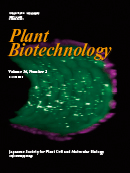
Plant Biotechnology
Elevating Knowledge in Agronomy and Crop Science.Plant Biotechnology is a distinguished journal published by the Japanese Society for Plant Cell and Molecular Biology, committed to advancing the field of plant biotechnology through the dissemination of high-quality research. With an ISSN of 1342-4580, this journal caters to a global audience interested in agronomy, crop science, and plant molecular biology. The journal has achieved notable rankings, including Q2 in Agronomy and Crop Science and Q2 in Plant Science, underscoring its relevance and impact in these fields according to the latest 2023 metrics. Furthermore, it holds a respectable position within Scopus rankings across multiple categories, indicating its contribution to the academic community. Although it is not an open-access journal, its regular publications, spanning from 1997 to 2024, feature cutting-edge studies that explore innovative approaches and technologies in plant science. Researchers, professionals, and students will find Plant Biotechnology an essential resource for staying informed on significant advancements and trends in plant research.
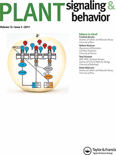
Plant Signaling & Behavior
Innovating Insights into Plant Signaling DynamicsPlant Signaling & Behavior is a prestigious journal published by TAYLOR & FRANCIS INC, dedicated to advancing the understanding of the complex signaling mechanisms and behavioral responses of plants. With an ISSN of 1559-2316 and an E-ISSN of 1559-2324, it has firmly established itself in the field of Plant Science, earning a Q1 ranking in the 2023 category quartiles and ranking #83 out of 516 in Agricultural and Biological Sciences, placing it in the 84th percentile according to Scopus metrics. The journal serves as a vital platform for researchers and professionals looking to publish innovative studies and reviews that explore the intricate relationships between plant behavior and environmental signaling. With coverage spanning from 2006 to 2024, Plant Signaling & Behavior not only enhances academic discourse but also supports the growing interdisciplinary nature of plant sciences. Although the journal is not open access, it remains a significant resource for students, researchers, and practitioners aiming to deepen their understanding of plant signaling and its implications for ecology and agricultural practices.
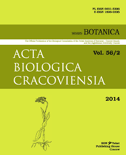
ACTA BIOLOGICA CRACOVIENSIA SERIES BOTANICA
Advancing plant science through rigorous research.ACTA BIOLOGICA CRACOVIENSIA SERIES BOTANICA is a distinguished journal published by the Polska Akademia Nauk (Polish Academy of Sciences), with its roots tracing back to 1996. As a pivotal publication in the field of Plant Science, it serves to disseminate high-quality research and findings, contributing to the ongoing development and understanding of biodiversity, plant ecology, and conservation. The journal is indexed under Scopus, ranked #203 out of 516 in its category, placing it in the 60th percentile and firmly within Q3 quartile for Plant Science in 2023. Researchers, professionals, and students will find invaluable content within its pages, enhancing their knowledge and supporting academic exploration. Although it currently does not offer open access options, the journal remains a crucial resource for those engaged in botanical sciences, with a commitment to advancing scholarship in Poland and beyond.
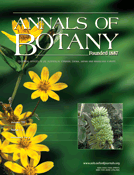
ANNALS OF BOTANY
Unveiling Nature's Secrets Through Rigorous ScholarshipANNALS OF BOTANY, published by Oxford University Press, stands as a leading journal in the field of Plant Science, with a distinguished history that dates back to 1887. This esteemed journal, recognized for its contribution to the advancement of botanical research, holds a prestigious Q1 quartile ranking in its category as of 2023. With a commitment to sharing high-quality, peer-reviewed research, ANNALS OF BOTANY provides a vital platform for researchers, professionals, and students to disseminate novel findings and engage in scholarly discourse. Although it does not currently offer open access options, the journal remains accessible to a wide academic audience, further cementing its role in facilitating the exchange of knowledge within the global botanical community. For those interested in the dynamic and evolving world of plant sciences, ANNALS OF BOTANY is an indispensable resource.

PHYSIOLOGY AND MOLECULAR BIOLOGY OF PLANTS
Bridging Research and Application in Plant SciencePHYSIOLOGY AND MOLECULAR BIOLOGY OF PLANTS, published by SPRINGER, is a vital journal focused on the advancing field of plant science. Featuring research that spans physiology, molecular biology, and their applications in agriculture, this journal is pivotal for academics, professionals, and students keen on understanding plant processes and enhancing crop production. With an ISSN of 0971-5894 and an E-ISSN of 0974-0430, this journal is recognized for its scholarly significance, ranking in the Q3 category in Molecular Biology, Q2 in Physiology, and Q1 in Plant Science as of 2023. The journal maintains a strong position in the Scopus rankings, with notable percentile rankings including 87th in Plant Science. Established in 2000, this publication aims to foster the dissemination of cutting-edge research by providing a platform for open discussion and knowledge sharing about plant physiology and molecular mechanisms. While it does not currently offer open access options, its comprehensive studies and reviews serve as an essential resource for enhancing our understanding of plant biology.
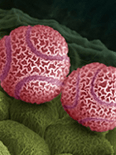
Annual Review of Plant Biology
Championing Transformative Ideas in Plant ScienceThe Annual Review of Plant Biology, published by Annual Reviews, stands as a premier academic journal dedicated to the comprehensive coverage of significant developments in the field of plant biology. With an impactful presence in the United States and a stellar reputation reflected in its Q1 rankings across multiple categories including Cell Biology, Molecular Biology, Physiology, and Plant Science, this journal consistently ranks among the top within its domain. The journal is particularly esteemed for its synthesis of the latest research findings, making it an invaluable resource for researchers, professionals, and students seeking in-depth insights and advancements in plant biology. Though it does not offer open access, the Annual Review of Plant Biology is essential for those committed to exploring the intricate mechanisms underlying plant function and development, with coverage spanning from 1996 to 2024. As the field continues to evolve, this journal will undoubtedly remain at the forefront, driving innovation and fostering a deeper understanding of plant sciences.

PLANT SYSTEMATICS AND EVOLUTION
Pioneering Research in Ecology and TaxonomyPlant Systematics and Evolution is a prestigious journal published by Springer Wien, dedicated to advancing research within the fields of plant taxonomy, evolution, and ecology. With its ISSN 0378-2697 and E-ISSN 1615-6110, this journal has been pivotal in shaping the scientific landscape since its inception in 1974. Based in Austria, it occupies a significant position in the academic community, being ranked in the Q2 quartile in both Ecology, Evolution, Behavior and Systematics and Plant Science as of 2023. This high-impact journal is recognized for its rigorous peer-review process and is indexed among the top publications in its category, holding a Scopus rank of #176 out of 516 in Plant Science and #252 out of 721 in Ecology, highlighting its relevance and quality in the research community. Although it does not currently offer open access, the journal is committed to making significant contributions to the understanding of plant biodiversity and evolutionary processes. This makes it an essential resource for researchers, professionals, and students aiming to know the latest developments in the study of plant systematics and evolution.